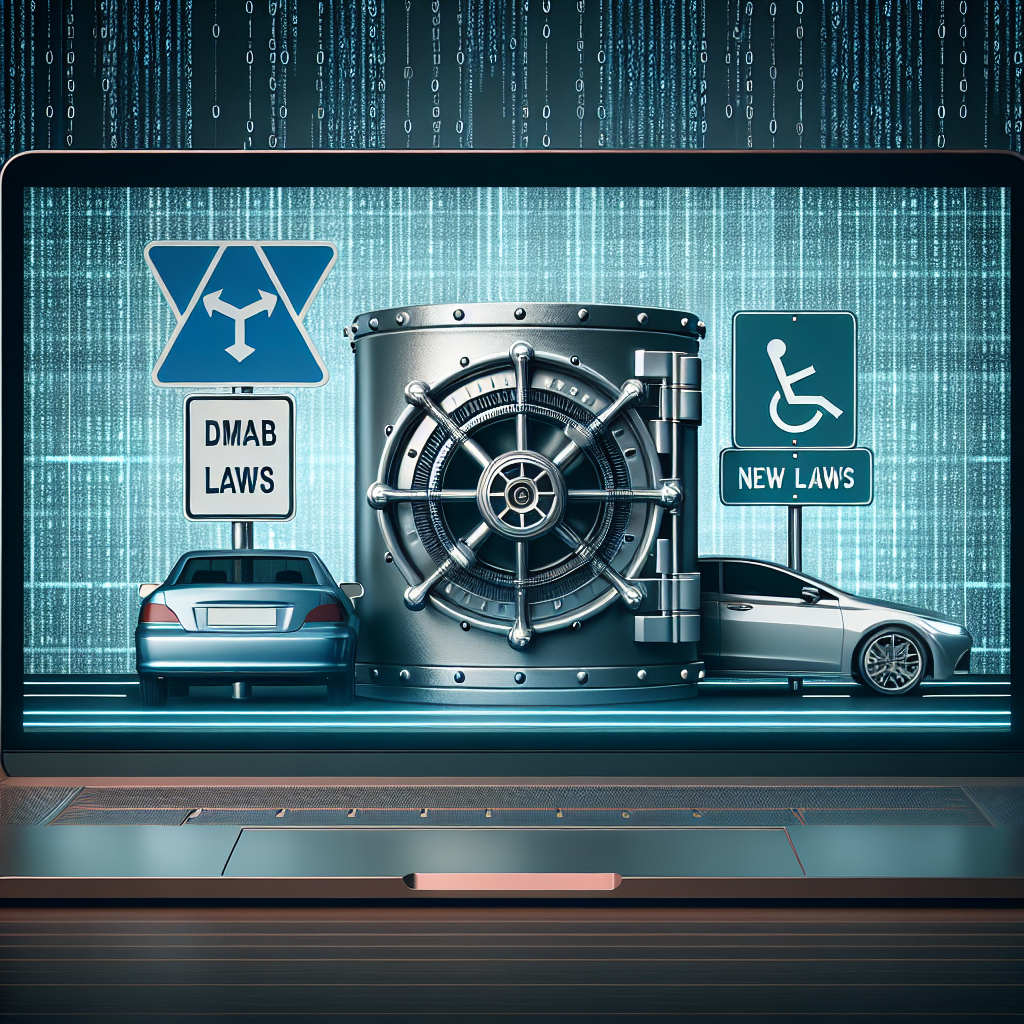“`html
How the Latest DMV Laws Are Boosting Driver Data Security and Privacy
Introduction
Today, personal information is super valuable, like money! So, keeping it safe is really important. For drivers, the Department of Motor Vehicles (DMV) holds a lot of personal info that could be alluring to hackers. This info includes things like Social Security numbers and driver’s license details. However, new DMV laws are now ensuring that this data is safer and protecting our privacy more effectively, so our personal information stays personal.
Why We Need Better Data Security
When you think of the DMV, you might picture long queues and lots of paperwork, but you may not realize the large pool of personal data they possess. DMVs handle data like Social Security numbers, driver’s license details, and even vehicle identification numbers (VINs). Therefore, DMVs are a major target for hackers aiming to steal info and identities.
If someone unauthorized gains access to these data systems, they might commit identity theft or make unjust charges, among other potential damages. Therefore, protecting driver information is crucial as the internet world becomes more intricate and digital thieves get smarter.
What the New DMV Laws Do
To manage these risks, new DMV laws are stepping up to enhance data security and driver privacy. These laws lay down strict rules on how driver information should be managed and protected. The laws have been introduced over a few months, and soon all DMV offices will have to comply with them.
Main Parts of the New Laws
Data Encryption and Safe Keeping
One significant part of the new DMV laws is data encryption. This means that even if someone tries to intrude, the data would appear as meaningless mess to anyone unauthorized. Additionally, the laws state that driver data must be stored securely, so no one can access or modify it without permission.
Rules on Who Can See the Info
The fresh legislations state that only authorized individuals can view or handle driver information. They’ve devised a robust system where DMV workers need to undergo multiple verification steps before accessing any information. This significantly heightens the hurdle for potential intruders.
Keeping an Eye on Data and Acting Fast
DMVs are now required to continuously monitor their technological systems for any abnormalities or signs of a data breach. If any anomaly is detected, they must follow specific procedures and steps to rectify it and inform the drivers so that they are safe.
Good News for Drivers
These new laws are excellent for anyone concerned about their privacy. With these security measures, drivers can feel assured that their personal info is being taken care of meticulously. Plus, drivers are being given more information and support to grasp these protective measures. It feels good to know your personal information is not just secure, but is being prioritized.
Some Problems and Complaints
However, the transition to these new safety measures is challenging. Some DMVs may not have the adequate funds or resources to implement these changes. Also, some people argue that although the laws provide help, online threats are constantly evolving, hence the laws require regular updates. A few think even stricter legislations are necessary to close any gaps left.
Conclusion
The new DMV laws mark a significant stride in safeguarding driver information from hackers. They don’t just patch present weaknesses, but also prepare for future threats. As DMV centers elevate their security, it is incumbent on drivers to keep learning about their rights and how their data is safeguarded.
What You Can Do
Staying informed is the key to keeping data secure. Drivers should regularly check for DMV updates and develop good data safety habits. If you have any concerns or feedback about how the DMV handles data, do not hesitate to contact your local DMV office. Your vigilance can contribute to enhancing data protection even further!
Call to Action
If you are seeking immediate assistance or more guidance on data security, feel free to visit Tags Clinic located at 3845 University Ave, San Diego, CA or call us at 619-777-9046. We are always ready to help you understand better and ensure your data security. Visit our website at tagsclinic.com for more information.
Find our location on Google Maps:
“`

Leave a Reply